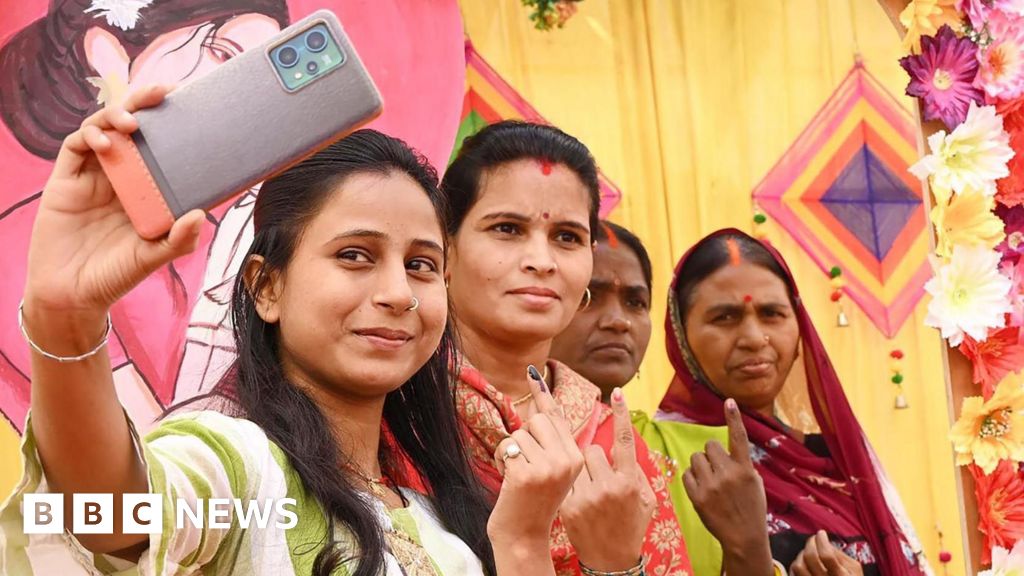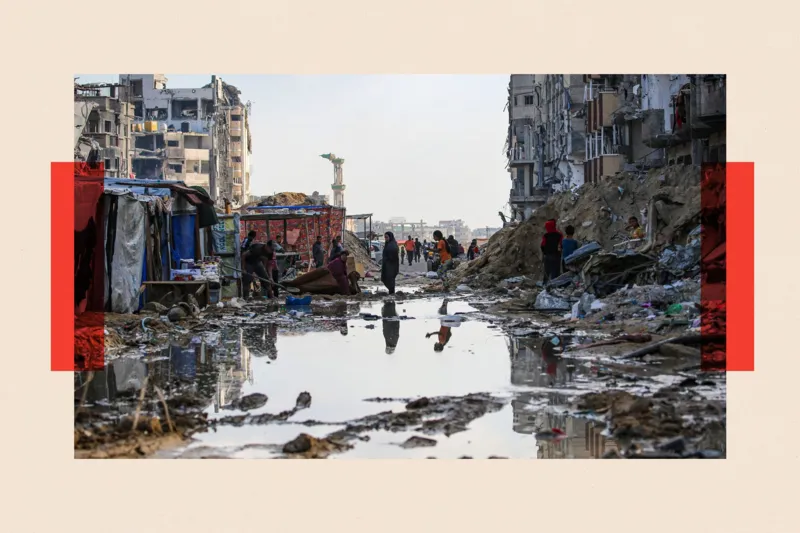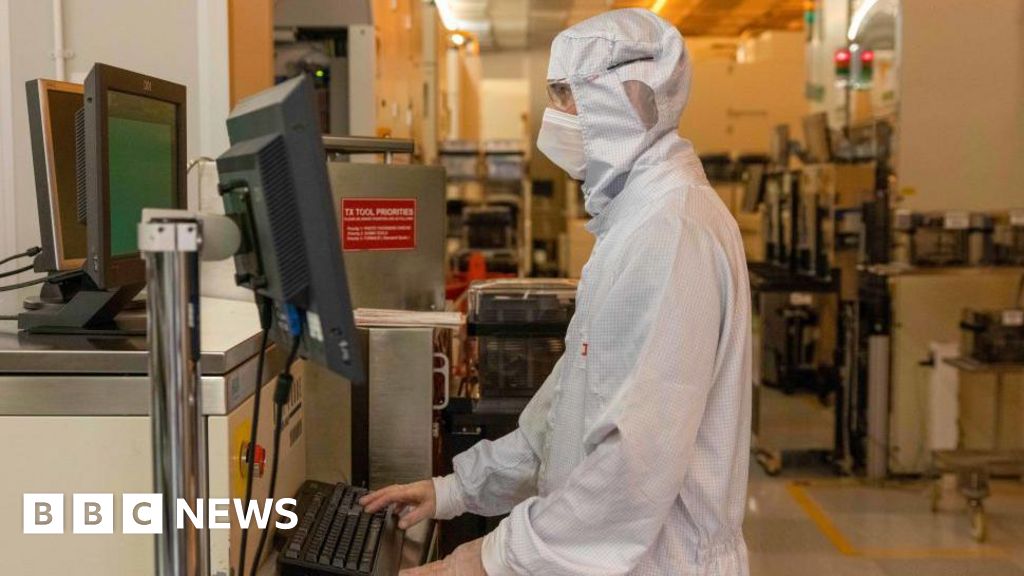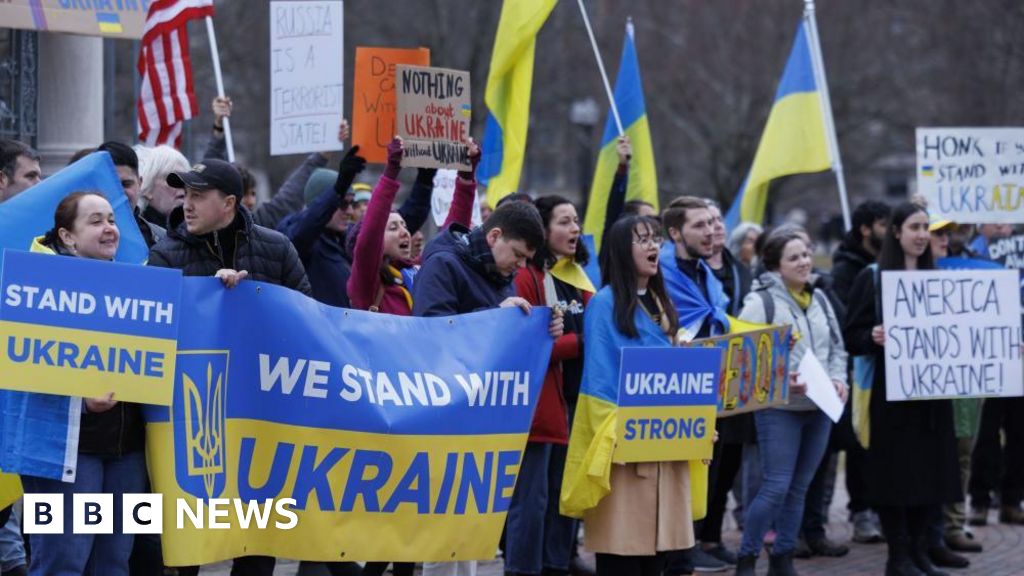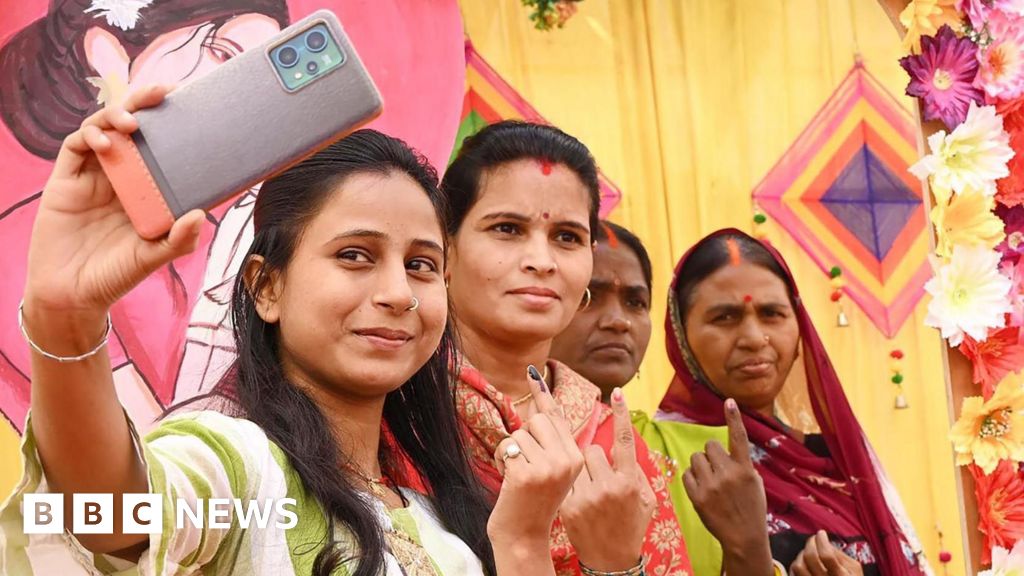
Freebies are powering election victories in India, but can its states afford them?
Over the years, handouts have taken different forms in the hotly contested political landscape of the world’s largest democracy. Voters have been lured with everything from television sets to bicycles and sometimes even gold ornaments – blurring the fine line between welfare economics and pre-poll populism.
In recent years, cash transfers, especially directed towards women, have become a popular election-winning strategy for political parties of all stripes.
A sweeping victory last week in the eastern state of Bihar – India’s poorest state – for an alliance led by Prime Minister Narendra Modi is being credited in part to a 10,000 rupee ($112; £85.18) cash handout to the state’s women. A record number of women turned out to vote in the election.
Similar women-oriented financial support schemes were launched by Modi’s party in other states like Maharashtra ahead of polls last year. Opposition parties have also promised similar schemes in some states ahead of elections.
Economists like Jean Drèze have argued in favour of such giveaways. He says that while distinguishing between “useful” and “wasteful” handouts is important, it is only by extracting promises during elections that the poor in India get anything at all from their political representatives.
On the other hand, despite his party’s own track record on the issue, Modi has in the past warned of the dangers of “revdi culture” – likening election giveaways to the frivolous distribution of sweets. India’s top court had also sought to curb the distribution of such “irrational freebies” during elections back in 2023.
While there is broad agreement on the need for targeted subsidies to challenge the use of handouts as electoral bait, Indian elections are increasingly dominated by unaffordable, poll-driven freebie economics that states can ill afford.
According to research from brokerage Emkay Global, Bihar is facing considerable fiscal pressure, with the deficit or gap between what the state earns and spends at 6% of its gross domestic product (GDP).
Despite this, the state announced pre-election schemes amounting to 4% of GDP, more than its capital outlay – money that could have been spent in job-creating, long-term assets that would have aided the state’s development.
It is just one example in a litany of states practising indiscriminate election populism, according to Emkay Global.
“Even good [fiscally prudent] states are now in the grip of freebie economics,” the brokerage said, as a result of which the 3% fiscal deficit to GDP ceiling that has been mandated for states, to curb non-budgeted spending, is now actually the floor.
Some estimates suggest that 21 of India’s 29 states have crossed this 3% deficit target, with disproportionate costs imposed by election-driven spending being one of the reasons.
The fact that such populism is unsustainable is illustrated by the Bharatiya Janata Party-led alliance’s Ladki Bahin (Beloved Sister) financial assistance scheme, which led to a 0.4% jump in Maharashtra state’s deficit, according to Emkay Global. It forced the government to roll back some of the promises once the polls were over.
India’s central bank has also flagged the rising burden of such subsidies on state-level debt as a key emerging concern.
According to the Reserve Bank of India (RBI), while overall debt of Indian states declined to about 28.5% of GDP by March 2024 compared with the levels seen over the past decade, it remains well above the 20% recommended threshold, with new pressures emerging in the form of an increasing subsidy burden.
“An area of incipient stress is the sharp rise in expenditure on subsidies, driven by farm loan waivers, free/subsidised services (like electricity to agriculture and households, transport, gas cylinder) and cash transfers to farmers, youth and women,” the RBI said in its 2024-25 report on state finances.
“States need to contain and rationalise their subsidy outgoes, so that such spending does not crowd out more productive expenditure.”
This warning comes as the private sector continues to hold back on investment in new job-creating factories, and the government, forced to slow its own capital spending on infrastructure, turns instead to tax cuts and giveaways to spur middle-class consumption.
But with freebies seeing such success in Bihar – and more state elections looming – that warning is unlikely to be heeded.
“This [Bihar] election outcome reinforces the freebie wave that has swept states in the last two years, and with Tamil Nadu, Kerala, and crucially, West Bengal going to polls next year, one can expect this race to the bottom to continue,” Emkay Global economists Medhavi Arora and Harshal Patel said in their note.
Follow BBC News India on Instagram, YouTube, X and Facebook.
